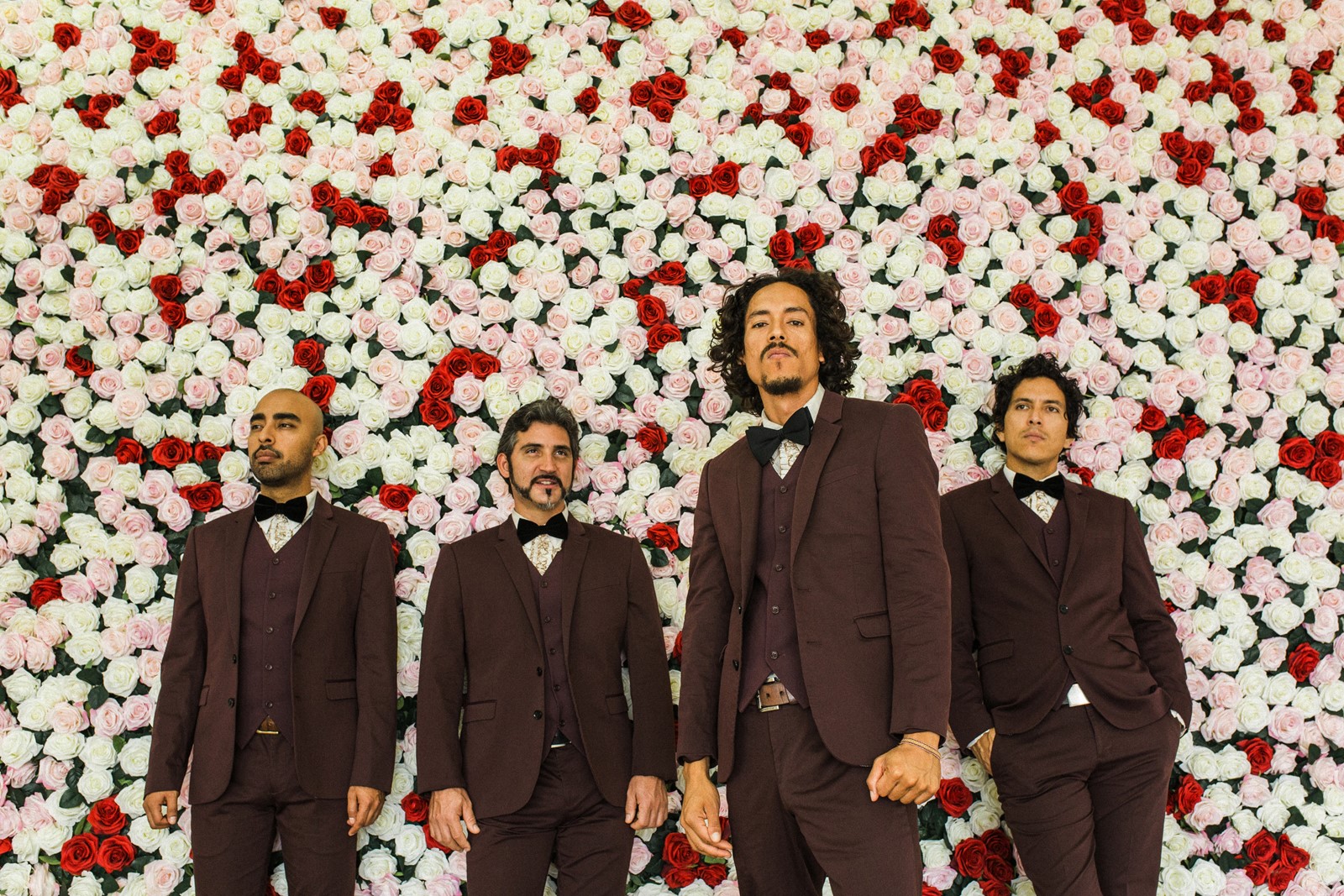Chicano Batman explores struggles for freedom in U.S.

Chicano Batman’s latest album is called “Freedom Is Free” (ATO), which may seem redundant or obvious, but in the eyes of this quartet of first-generation Americans, the expression is anything but simplistic.
“There is an innate freedom we are entitled to, but we have to stand up against anybody trying to market it, sell it, own it,” says bassist Eduardo Arenas, who co-founded the soul-funk band from East Los Angeles in 2008. “Freedom of expression and thinking without fear should be free, but it’s not. ... We can’t express our free will because that is the system we are born into.”
Yet the title song from the quartet’s fourth studio album is delivered with an upbeat sense of resilience, anchored by Arenas’ rubbery bass line and Bardo Martinez’s subtly insistent vocals: “You got your guns up on display/ But you can’t control how I feel no way.”
Many of the songs were written before Donald Trump was elected president last year after promising to build a wall on the Mexican border. But Arenas and two of his bandmates are of Mexican heritage, and he doesn’t deny the album’s more political and socially conscious themes. He was made to feel like an outsider in America since childhood, so Trump’s promised “wall” is hardly the first obstacle he, his bandmates and his community have had to face.
“The only conscious decision we made about this record was that it would be more soul-based musically,” he says. “?‘Freedom is Free’ started out as a silly idea, a dance track, a disco song, and Bardo had that phrase, ‘freedom is free.’ It was catchy, and then it grew into something else. We play these songs on tour and we sense that the audiences are responding and ready to hear something different, a new idea, a challenge to the status quo.”
Arenas, Martinez and guitarist Carlos Arevalo began playing as a trio in East Los Angeles a decade ago after growing up in Latino neighborhoods steeped in old-school soul and low-rider funk, with a strong grounding in Brazil’s ultrapolitical Tropicalia music of the ’60s and Mexican folk music. Drummer Gabriel Villa later brought a feel for cumbia that reflected his Colombian heritage.
“We’re four Latinos onstage at these big festivals, and you see these Latino kids out there, and we give them an understanding they can do something,” Arenas says. “We all are first-generation American. There is a struggle associated with that, and people can identify with us.”
In recent years, the band’s following has crossed racial lines. Even as the band retained its ethnic roots, it was always willing to experiment, often mixing several genres at once. “I began listening to Miles Davis when I was 20, and it totally took apart any genres, barriers or borders to what something is,” Arenas says. “What if we refuse to judge and instead see where the path of not judging someone takes us? Music does that; it knocks down barriers so we can be less scared about things we don’t know. It teaches you to open up your heart.”


 PREVIOUS ARTICLE
PREVIOUS ARTICLE
